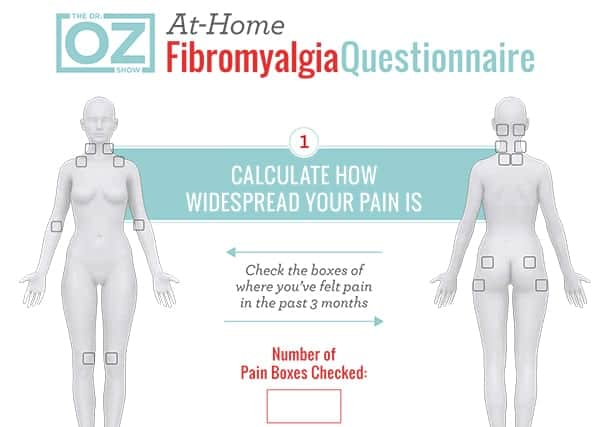This simple test can help you find out if you have fibromyalgia


With millions of people across the UK suffering from fibromyalgia, getting a reliable diagnosis of the condition can be difficult.
This at-home questionnaire is designed to help those get a handle on whether their symptoms could be a result of the condition.
What is fibromyalgia?


Advertisement
Hide AdAdvertisement
Hide AdFibromyalgia - also known as fibromyalgia syndrome (FMS) - is a long term condition that causes pain all over the body, explains the NHS.
Anyone can develop fibromyalgia, although it affects around seven times as many women as it does men. It typically develops between the ages of 30 and 50, but can occur in anyone no matter their age.
It’s unclear how many people actually suffer from fibromyalgia, but research has suggested that it could be relatively common.
What are the symptoms of fibromyalgia?
Fibromyalgia exhibits a huge range of symptoms which include:
Advertisement
Hide AdAdvertisement
Hide AdWidespread pain which can feel like an ache, a burning sensation or a sharp, stabbing painExtreme sensitivity to pain which could make even the lightest touch feel painfulFatigueCognitive problemsHeadachesIrritable bowel syndromeDepression
You might find your symptoms get better or worse depending on factors like:
Your stress levelsChanges in the weatherHow physically active you are
The at-home test you can do
A woman has now posted a helpful guide on The Fibro Warriors website for those wondering if they might be affected by the condition.
Advertisement
Hide AdAdvertisement
Hide AdA final diagnosis will always be made by a doctor, but the guide acts as a helpful way to get a clearer idea as to whether you have the symptoms.
The test was designed by Doctor Oz, an American TV doctor.
The questionnaire is simple:
Check the areas of your body where you’ve felt pain in the past three monthsCheck any overlapping symptoms, like headaches, heartburn, fatigue etcTally the numberIf you score seven or higher, you’re encouraged to bring the sheet to your doctor to discuss fibromyalgia
This is the at home check list you can do (Photo: Doctor Oz)
Can you treat it?
As it stands there is no cure for fibromyalgia, but there are treatments that can help improve your quality of life.
Advertisement
Hide AdAdvertisement
Hide AdThere are a variety of healthcare professionals that might be involved in your care, including:
Rheumatologist - a specialist in conditions that affect muscles and jointsNeurologist - a specialist in conditions of the central nervous systemPsychologist - a specialist in mental health and psychological treatments
Due to the variety of symptoms that fibromyalgia exhibits, it means that no single treatment will be able to manage all of them. Similarly, treatments that work for some, won’t work for others.
The NHS explains that you might need to take several different types of medicines for fibromyalgia, including painkillers, antidepressants, medication to help you sleep, muscle relaxants, anticonvulsants and antipsychotics.